|
|
American Ships in World War I and II
|
 (Another (Another Arizona, USS — American battleship The sunken ship lies in Pearl Harbor with a memorial above it honoring the lost of 1177 crew. The sunken ship continues to leak about a quart of oil per day into the harbor. LAUNCHED: 1915, June 18 → FATE: Sunk during the December 7, 1941 Pearl Harbor attack. |
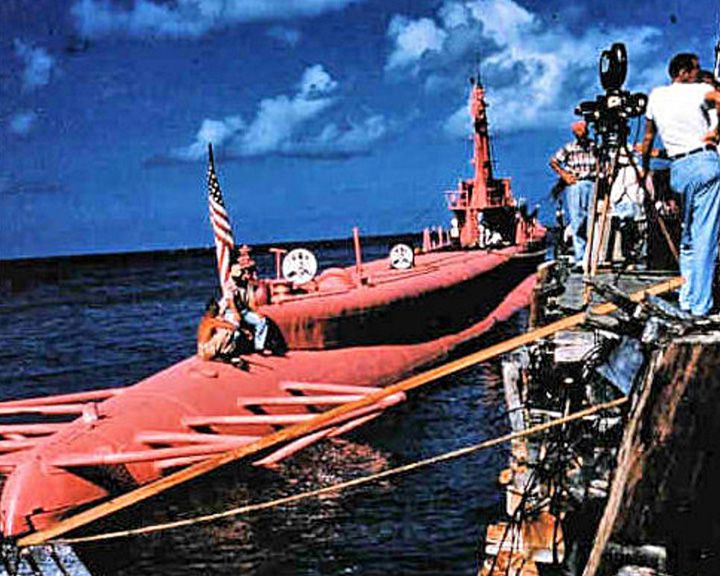 Balao, USS — American submarine Featured as the "pink submarine" in the 1959 movie Operation Petticoat, co-starring with Cary Grant and Tony Curtis. She served ten patrols in World War II, then in training exercises afterwards. Her conning tower and periscope are on display at the U.S.Navy Museum in Washington, D.C. LAUNCHED: 1942, October 18 → FATE: Sunk as a target off Florida on September 6, 1963. |
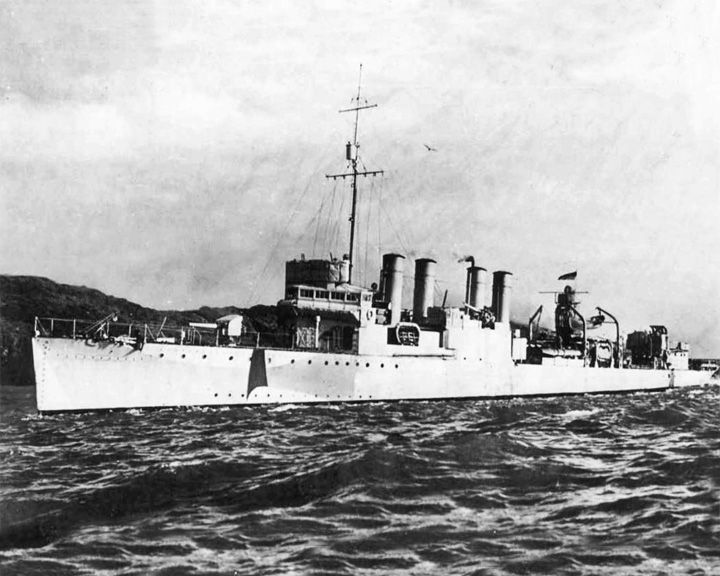 Ballantrae, USS — American Town-class destroyer A fictional ship in the movie Gift Horse on a one-way mission in World War II to destroy a German-held dry dock in France; based on HMS Campbeltown and the St Nazaire Raid. The USS Twiggs was turned over to the Royal Navy in 1940 to become HMS Leamington. From 1944-1949, she served under the Russian flag, then was returned to Great Britain in 1950 where she appeared in the movie. LAUNCHED: 1951, movie release; USS Twiggs launched September 1918 → FATE: After appearing in the movie, she was scrapped at Newport, Wales in 1951. |
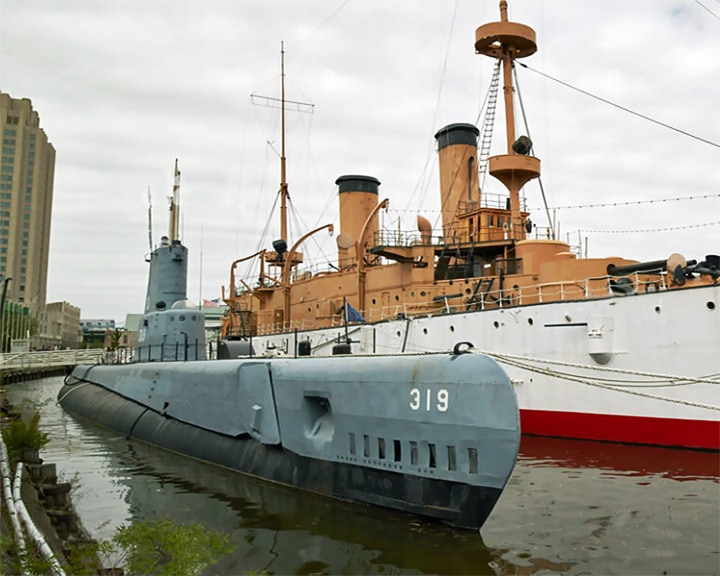 Becuna, USS — American submarine Designated a National Historic Landmark for her service in World War II, for which she earned four battle stars. She is credited with having sunk two Japanese tankers totaling 3,888 tons. LAUNCHED: 1944, January 30 → FATE: She serves as a museum ship at the Independence Seaport Museum in Philadelphia, Pennsylvania |
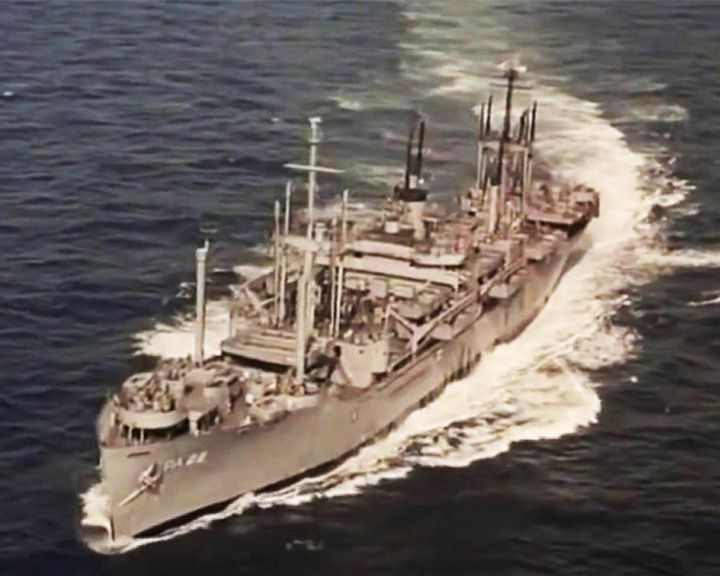 Belinda, USS — American attack transport The World War II ship in the 1956 movie Away All Boats.. She was portrayed by the USS Randall, an attack transport in service with the United States Navy from 1944 to 1956. LAUNCHED: 1956 → FATE: The actual ship, Randall, was scrapped in 1972. |
 Birmingham, USS — American scout cruiser, Chester-class The first airplane takeoff from a ship in history in 1910. During World War I, she patrolled along the northeast U.S. coast until 14 June 1917 when she sailed from New York as part of the escort for the first US troop convoy to France. LAUNCHED: 1907, May 29 → FATE: Sold for scrap, 13 May 1930. |
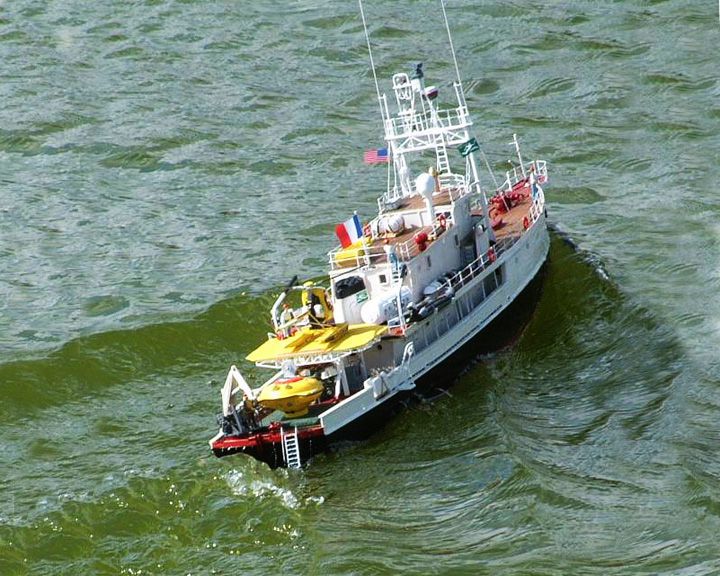 (Another (Another Calypso, RV — American minesweeper built for the British; refitted for research Oceanographer Jacques-Yves Cousteau sailed her as a mobile laboratory for field research. During World War II she served as a minesweeper and carried advanced equipment, including mini submarines. LAUNCHED: 1941, March 21, converted in 1950 → FATE: Sank in 1996, raised, neglected, and now being restored in Brittany. |


|
Page 2
|
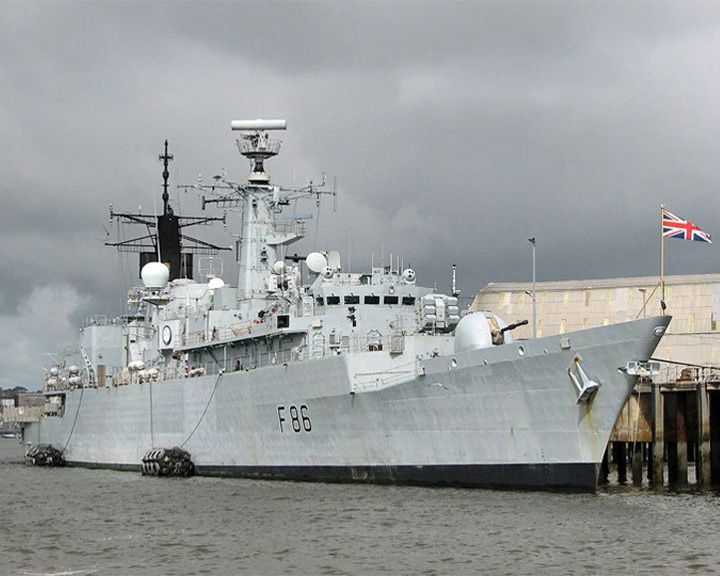 Campbeltown, HMS — American Wickes-class destroyer A most famous ship in the St. Nazaire Raid in 1942 when, packed with explosives, she was rammed into a German port and detonated. The ship and the raid were depicted in the movie Gift Horse. (See Ballantrae, HMS) LAUNCHED: 1919, January 2 as USS Buchanan; given to Britain and renamed in 1940 → FATE: Destroyed March 28, 1942 in the Saint Nazaire Raid, World War II. |
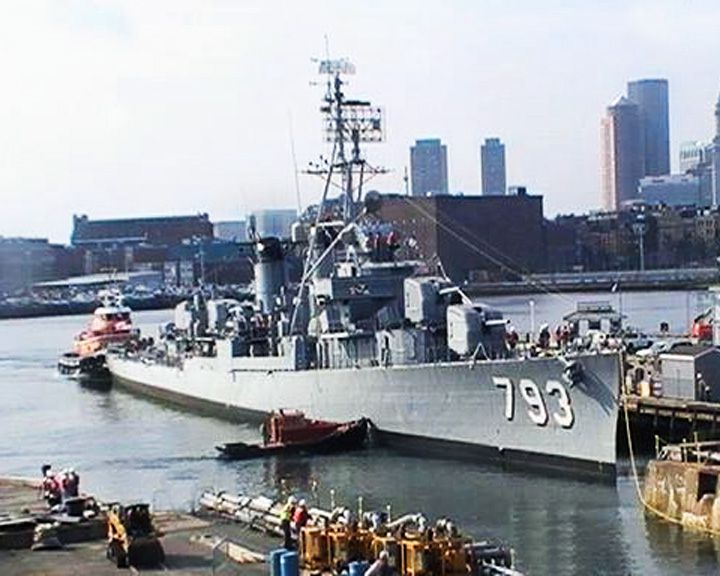 Cassin Young, USS — American destroyer in World War II One of only four surviving Fletcher-class destroyers still afloat. Named for Captain Cassin Young (1894-1942), who was killed in the Naval Battle of Guadalcanal. LAUNCHED: 1943, September 18 → FATE: Docked at the Boston Navy Yard as a museum ship as a museum ship. |
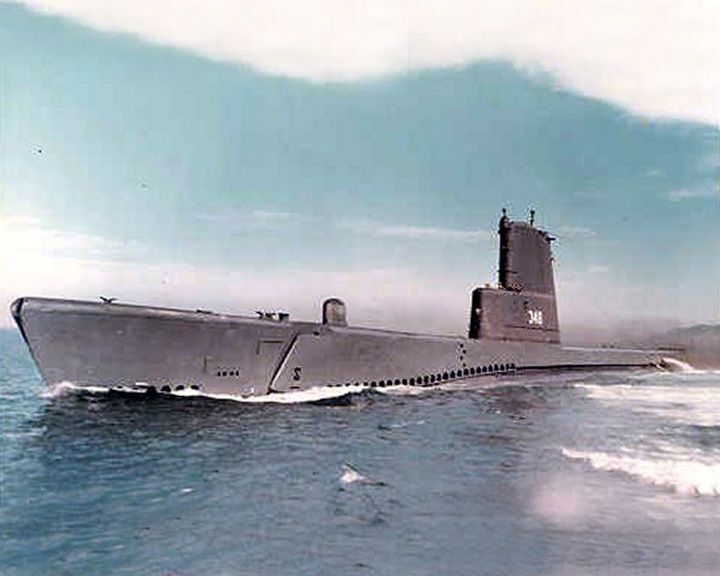 Cusk, USS — American submarine The first submarine to launch a guided missile from her deck. She appeared in the 1950 movie The Flying Missile as the USS Bluefin. LAUNCHED: 1945, July 18 → FATE: Sold for scrap June 26, 1972. |
 Dolpin, USS — American V-class submarine The penultimate design in the V-boat series and star in the movie Submarine D-1. The movie hi-lights the use of the Momsen lung for emergency submarine rescues as well as the training tank structures of New London, Connecticut submarine base. LAUNCHED: 1931, March 18 → FATE: Broken up in August 1946. |
 Drum, USS — American Gato-class submarine She is the oldest of Gato-class submarine still in existence, having received a total of 12 battle stars for her World War II service. She sank 15 ships for a total of 80,580 tons of Japanese shipping, eighth highest of all US submarines. LAUNCHED: 1941, May 18 → FATE: Currently a museum ship in Mobile, Alabama, at Battleship Memorial Park. |
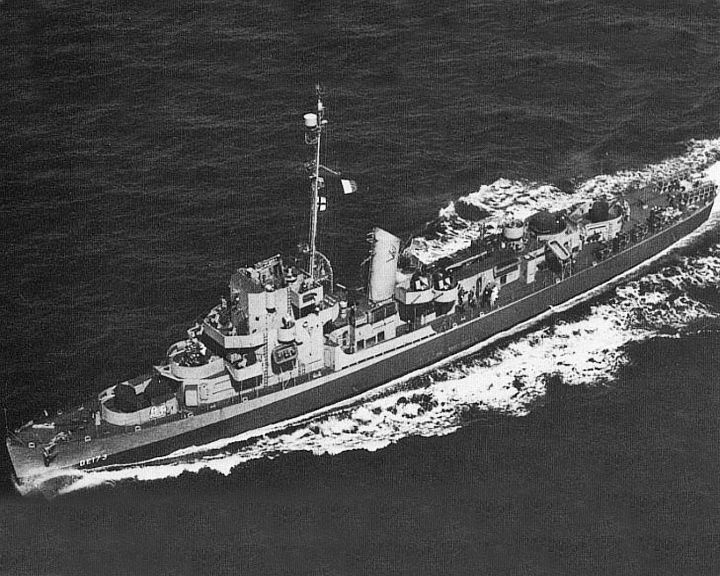 Eldridge, USS — American destroyer escort Famed as part of an alleged military experiment of cloaking ships invisible and carried out by the U.S. Navy at the Philadelphia Naval Shipyard.. A 1984 movie of the incident, The Philadelphia Experiment, presented a fictionalized version of the incident. LAUNCHED: 1943, July 25 → FATE: Decommisioned and scrapped November 11, 1999. |
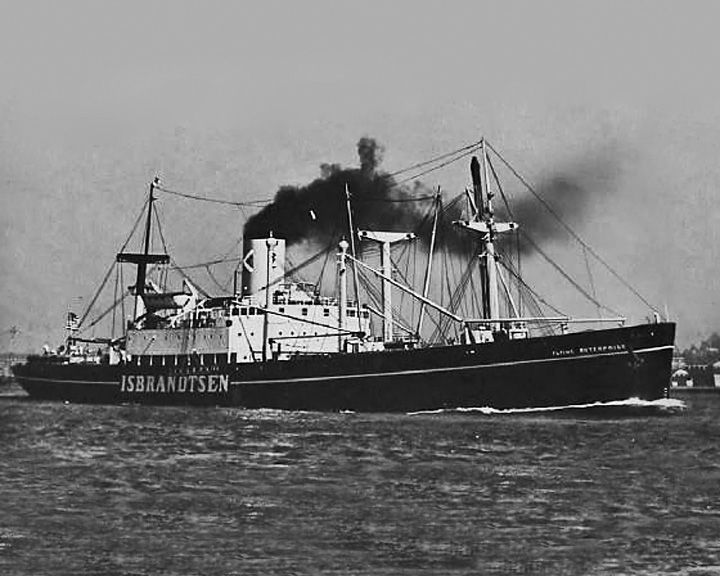 (Another (Another Flying Enterprise — American cargo ship in World War II, then a tramp steamer Subject of intense deep-sea diving and salvage. In 1960, a portion of the cargo was salvaged by an Italian company. In 2001, a team of Danish and British divers re-discovered the lost shipwreck almost 50 years after she had sunk. LAUNCHED: 1944, March → FATE: Sank south of Cornwall, England January 10, 1952. |
 Hannibal, USS — American collier A target ship in the Chesapeake Bay. In 1966, a old WW II Liberty ship, the American Mariner, was made a target ship, and, by tradition, was named Hannibal. LAUNCHED: 1898, April → FATE: Sunk as target practice March 1, 1945. |
|
Page 3
|
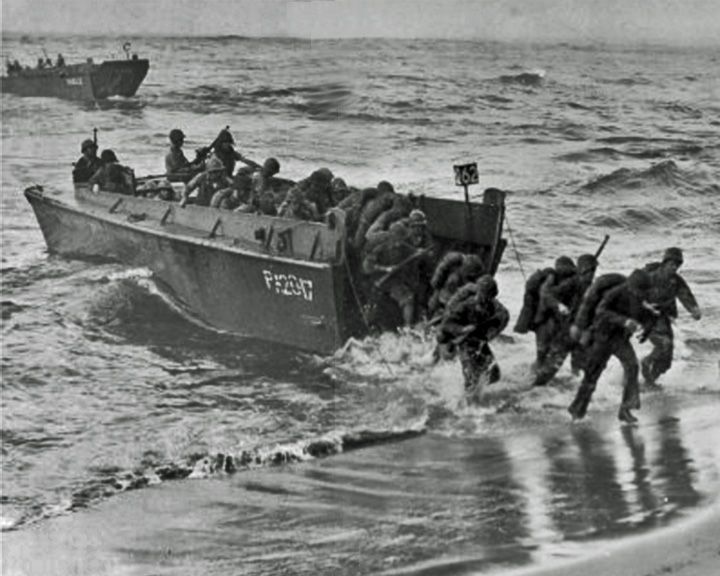 Higgins boat — American troop landing craft (Landing Craft, Vehicle, Personnel or LCVP) Troop landing craft crucial to the Allied victories in World War II. Designed by Andrew Higgins, nearly 20,000 were build. LAUNCHED: 1935 → FATE: Only a few survive and are being restored. |
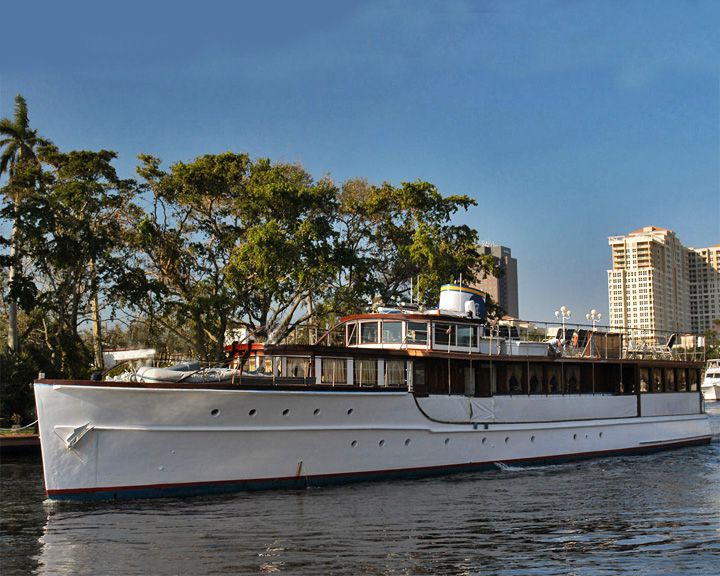 Honey Fitz — American yacht Presidential yacht was renamed after John Francis "Honey Fitz" Fitzgerald, maternal grandfather of President John F. Kennedy. The yacht saw service during World War II as a picket ship off Fire Island, New York. She also served as a training ship for submarine crews. LAUNCHED: 1931 → FATE: Still in service as a pleasure boat. |
 Houston, USS (CA-30) — American cruiser, Northampton-class During the Battle of Sundra Strait, she put up a valiant effort an against overwhelming Japanese offense. In the 1930s, she made several special cruises, several with President Franklin Roosevelt aboard. LAUNCHED: 1929, September 7 → FATE: Sunk by a torpedo, 1 March 1942. |
 Indiana, USS (BB-1) — American battleship First battleship in the United States Navy comparable to foreign battleships of the time. Decommissioned in 1919, her name was changed to Coast Battleship # 1. She was subsequently used as a target in ordnance tests and sank as a result. LAUNCHED: 1893, February 28 → FATE: Sunk as target on November 1, 1920 |
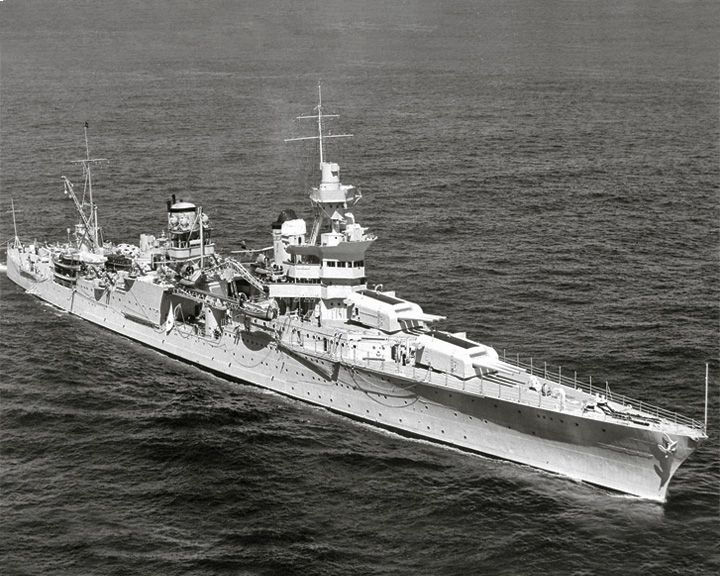 Indianapolis, USS — American Portland-class cruiser Last U.S. ship sunk by enemy in World War II; greatest loss of life at sea in the U.S. Navy's history. Four days after delivering the 1st atomic bomb to Tinian, she was torpedoed and sank with 300 crew. The 900 survivors faced exposure, dehydration, and shark attacks until 4 days later only 317 were rescued. LAUNCHED: 1931, November 18 → FATE: Sunk by a Japanese submarine July 30, 1945. |
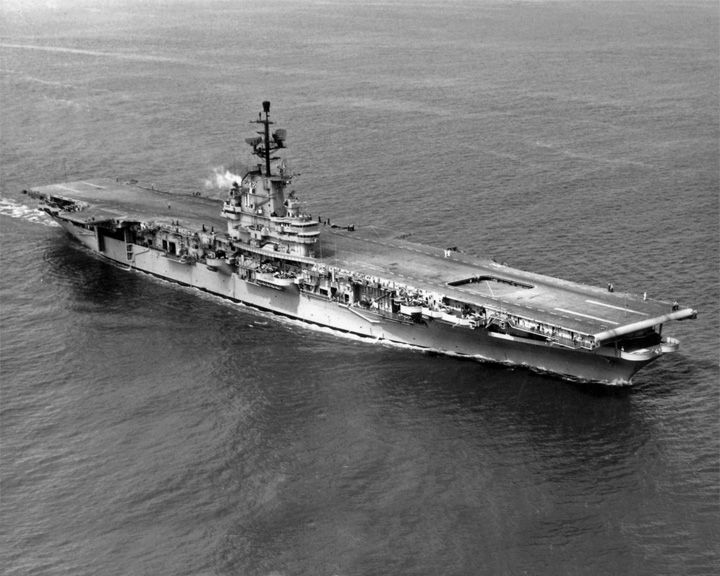 Intrepid, USS — American aircraft carrier; Essex-class In World War II, served extensively in the Pacific; later recovered capsules in space program. Upgraded several times; first American carrier to launch aircraft with steam catapults. One of more than a dozen English and American ships and boats named Intrepid. LAUNCHED: 1943, April 18 → FATE: Currently a museum ship docked at Intrepid Sea, Air & Space Museum in New York City. |
 (Another (Another Iowa, USS — American fast battleship First of her class, the last battleship in active service in the world. During a gunnery exercise, on April 19, 1989, an explosion ripped through a gun turret, killing 47 crewmen. LAUNCHED: 1942, August 18 → FATE: Anchored at San Pedro as a museum ship. |
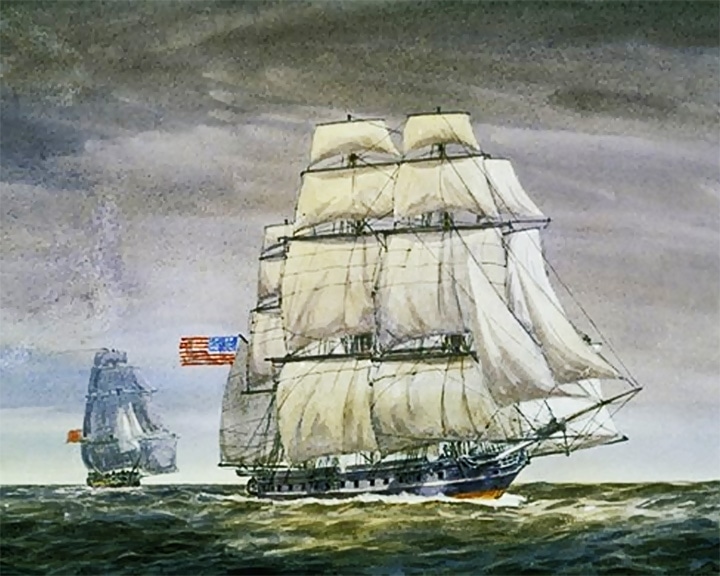 John Adams, USS — American frigate She participated in the raid on Combahee Ferry that Harriet Tubman, the former slave and Union operative, organized with Union colonel Montgomery. She fought in the Quasi-War, the First and Second Barbary Wars, the War of 1812, the Mexican–American War and the American Civil War. LAUNCHED: 1799, October → FATE: Sold October 1867 to the British to use as the Hong Kong Water Police Headquarters. In February 1884, she caught fire and was lost. |
|
Page 4
|
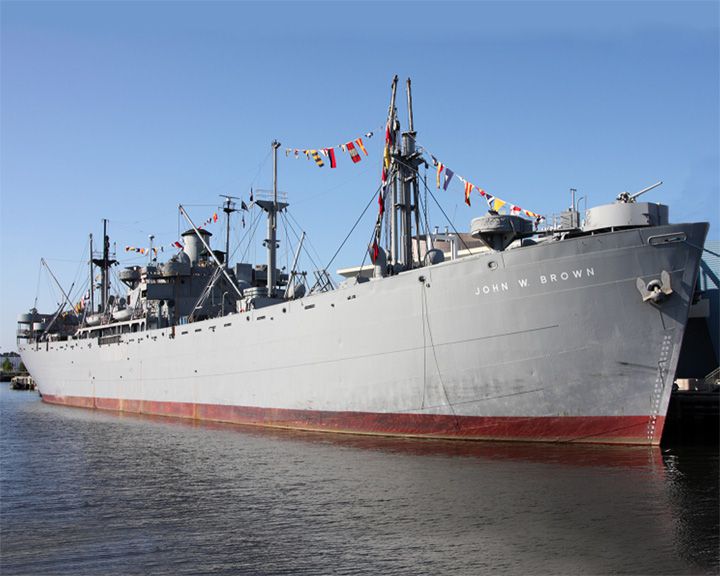 John W. Brown, SS — American liberty ship One of two still operational and one of three preserved as museum ships. After making 12 troop and cargo voyages across the Atlantic during World War II, she served as a training ship from 1946 to 1982. LAUNCHED: 1942, September 7 → FATE: After restoration, now a floating museum stationed in the Chesapeake Bay, Baltimore, Maryland. |
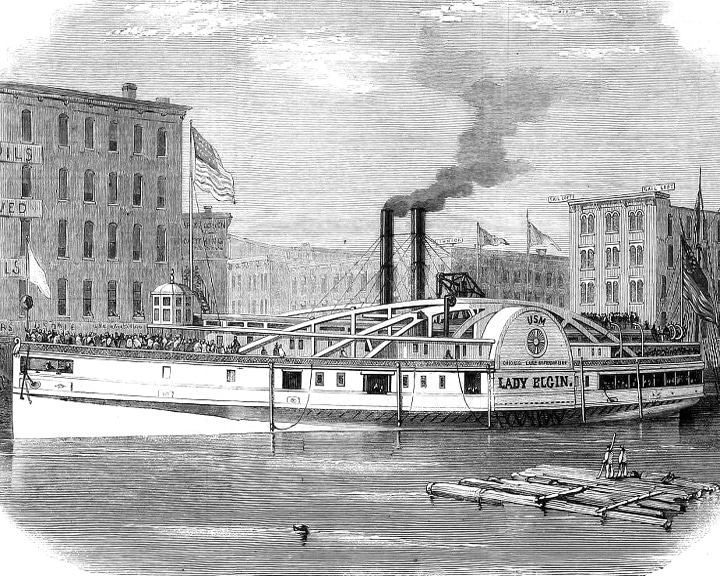 Lady Elgin, PS — American paddle steamer The wooden-hulled sidewheel steamship sank in Lake Michigan near Port Clinton, Illinois with the loss of 300 lives. During her time afloat, she was one of the most elegantly appointed passenger ships sailing the Great Lakes. LAUNCHED: 1851 → FATE: Sunk in collision with schooner Augusta of Oswego September 8, 1860 |
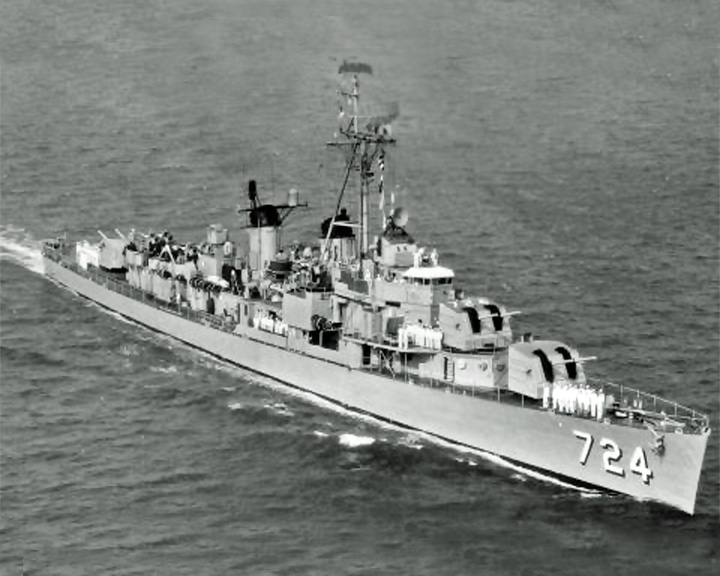 Laffey, USS — American Allen M. Sumner-class destroyer During the battle of Okinawa, she withstood the greatest kamikaze air attack in history, losing 32 killed and 71 wounded. Laffey was declared a National Historic Landmark in 1986, the only remaining US-owned Sumner-class destroyer LAUNCHED: 1943, November 21 → FATE: After WWII, she was repaired and continued to serve until decommissioned March 9, 1975. Laffey is currently a museum ship at Patriots Point in Mount Pleasant, South Carolina. |
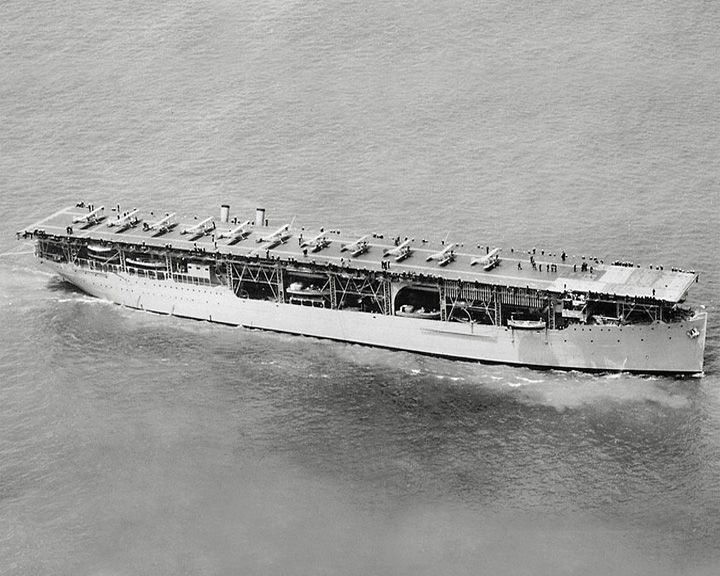 Langley, USS — American aircraft carrier First American aircraft carrier and U.S. Navy's first turbo-electric-powered ship. Following a conversion in 1936 to a seaplane tender, she fought in World War II. LAUNCHED: 1911, built as a collier converted in 1920 → FATE: Attacked and badly damaged by Japanese planes, she was scuttled, February 27, 1942. |
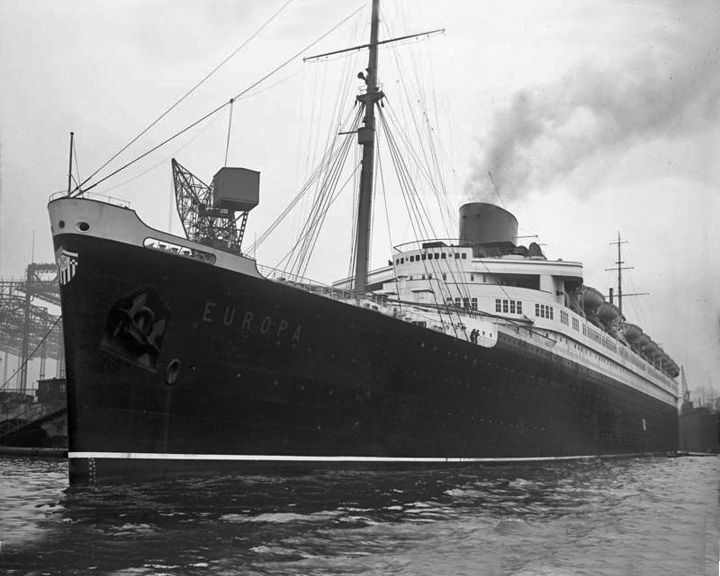 Liberté, SS — German ocean liner; then American war prize; then French owned Featured prominently in the movie The French Line, starring Jane Russell. She was taken as a US war prize at the end of World War II, then used to transport US servicemen back to the states, and finally turned over to the French as war reparations. LAUNCHED: 1928, August 18 → FATE: Retired in 1961 and scrapped in 1962. |
 Massachusetts, USS — American South Dakota class battleship Has the distinction of having fired the US Navy's first and last 16-in shells of the World War II. Despite being used as a parts cache to get the Iowa-class battleships back in service, Massachusetts was designated a National Historical Landmark a 14 January 1986. LAUNCHED: 1941, June 18 → FATE: Became a in museum ship at Battleship Cove, Fall River, Massachusetts June, 1965. |
 Meredith Victory, SS — American cargo ship, freighter The "Ship of Miracles" saved more than 14,000 refugees during the Korean War, the largest humanitarian rescue operation by a single ship. The ship was built to transport supplies and equipment overseas during World War II. LAUNCHED: 1945, June 18 → FATE: Broken up for scrap in China in 1993. |
 Missouri, USS — American battleship The site of the surrender of Japan which ended World War II. She was the last battleship built by the United States. LAUNCHED: 1944, January 18 → FATE: On exhibit near the USS Arizona Memorial at Pearl Harbor in Honolulu, Hawaii. |
|
Page 5
|
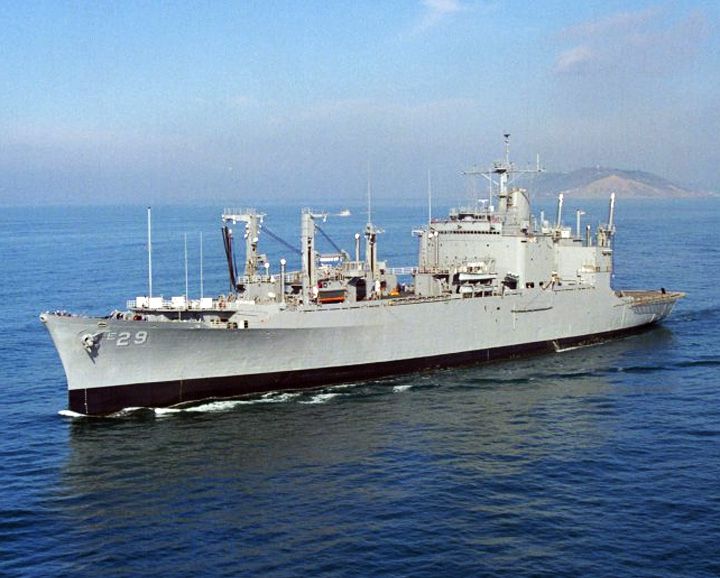 Mount Hood, USS — American ammunition ship The ship and dozens of surrounding vessels were obliterated with over 370 casualties in a massive explosion. The ship's 3800 tons of ordnance produced a blast equivalent to a tactical nuclear weapon. LAUNCHED: 1943, November 28 → FATE: Exploded on November 10, 1944, at Seadler Harbor on Manus Island. |
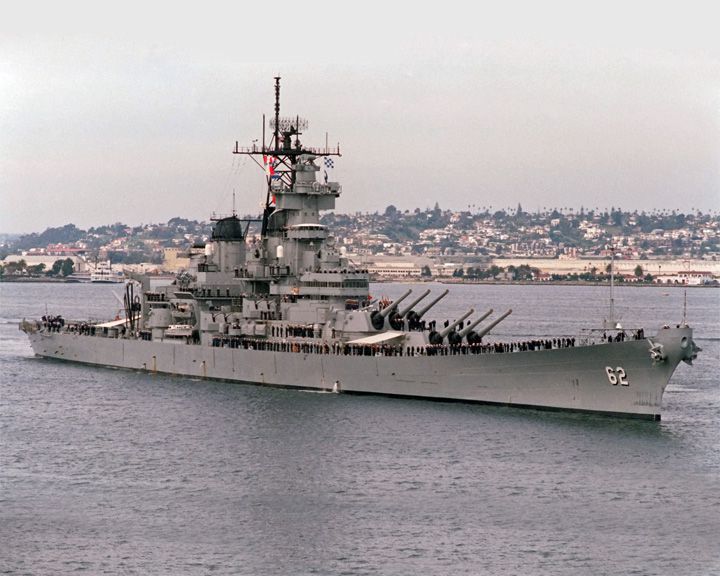 New Jersey, USS — American battleship Earned more battle stars for combat actions than the other American battleship. She was the only U.S. battleship to provide gunfire support during the Vietnam War. LAUNCHED: 1942, December → FATE: In a museum at the Camden Waterfront, Camden, New Jersey. |
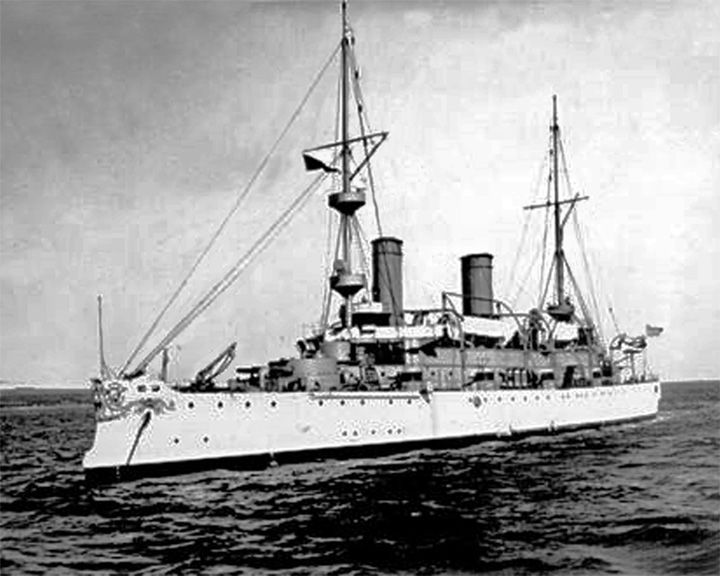 Olympia, USS — American protected cruiser Famous as the flagship of Commodore George Dewey at the Battle of Manila. She is the sole floating survivor of the US Navy's Spanish American War fleet. LAUNCHED: 1892, November 18 → FATE: Restored as a museum ship at the Independence Seaport Museum in Philadelphia. |
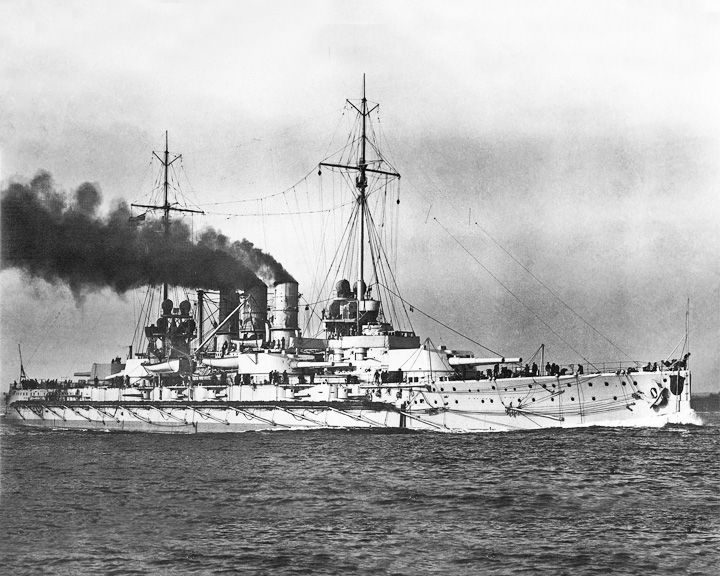 Ostfriesland, SMS — German battleship, ceded to America after World War II Sunk by bombs dropped from aircraft by General Billy Mitchell to demonstrate air power. After having seen action in World War I, the ship was ceded to the United States as war reparations. LAUNCHED: 1909, Septmber 30 → FATE: Sunk by bombs off Cape Hatteras July 21, 1921. |
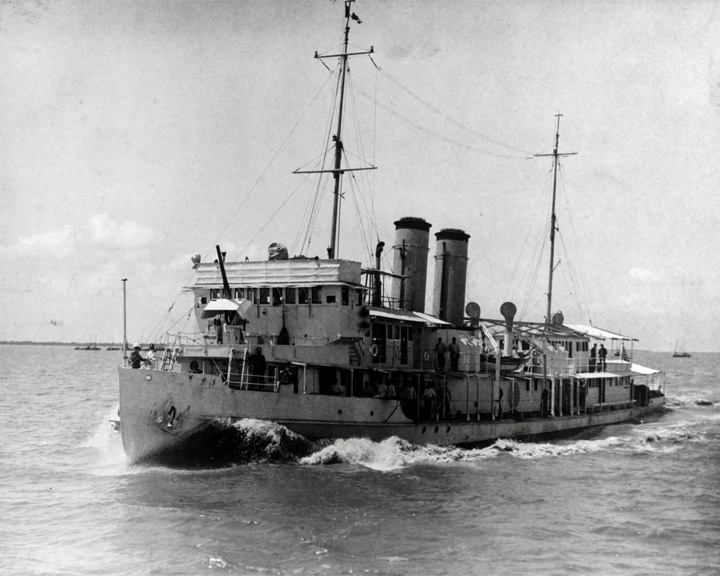 Panay, USS — American river gunboat The USS Panay incident; on December 12, 1937, a Japanese bombing attack on this U.S. Navy river gunboat and three Standard Oil Company tankers on the Yangtze River. Two newsreel cameramen were present on Panay and filmed much of the attack and afterward from shore as Panay sank. See Newsreel. LAUNCHED: 1927, November 10 → FATE: Sunk in December 12, 1937. |
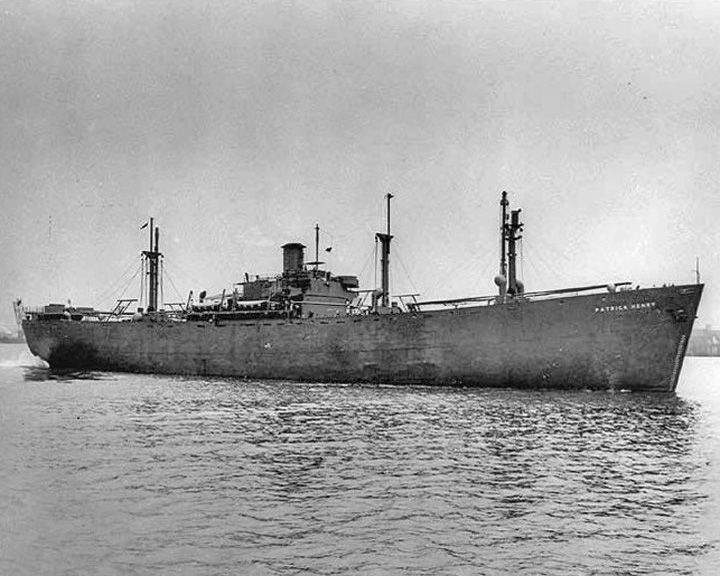 Patrick Henry, SS — American liberty ship; cargo ship First of 2751 liberty ships built during World War II. Liberty ships were built in a mass production method, each typically in 70 days or less. SS Patrick Henry made 12 voyages across the Atlantic Ocean. LAUNCHED: 1941, September 18 → FATE: Went aground off the coast of Florida July of 1946, scrapped in 1960. |
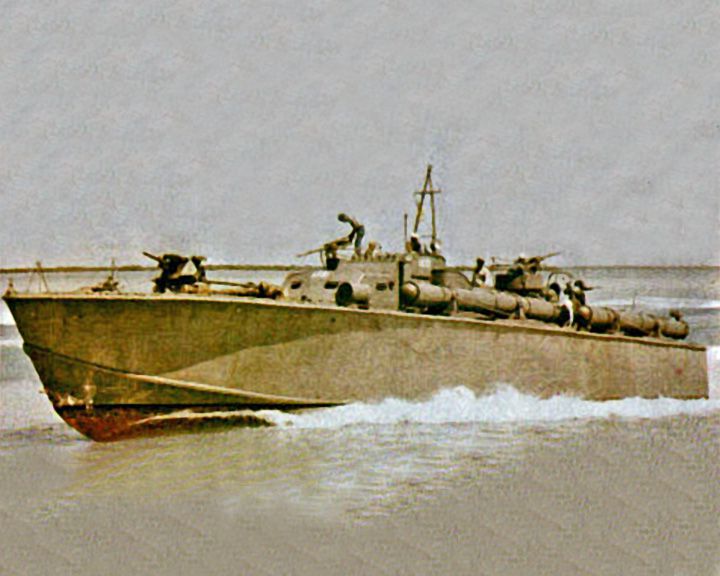 PT 109 — American motor torpedo boat Commanded by Lieutenant John F. Kennedy. The movie of the incident PT 109 was made with President Kennedy's approval provided the events be historically accurate, and the profits go to the survivors of PT 109 and their families. LAUNCHED: 1942, June 18 → FATE: Rammed and sunk in the Solomon Islands by the Japanese destroyer Amagiri on a moonless night, August 2, 1943 during World War II. |
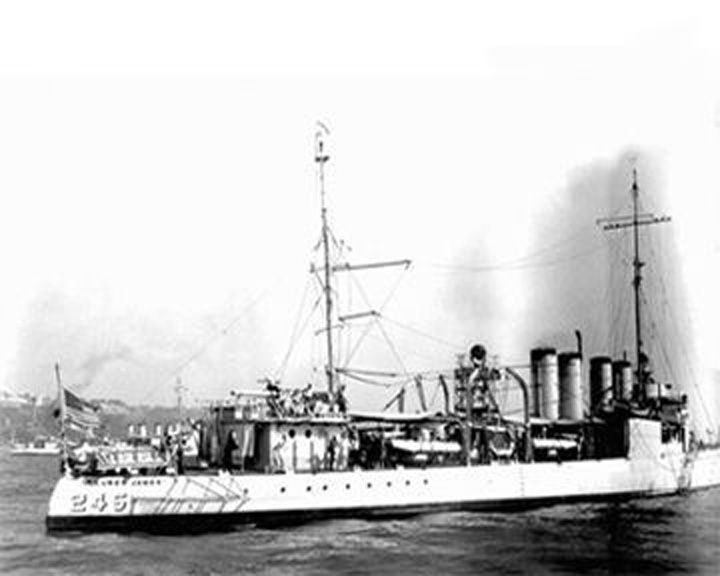 Reuben James, USS — American destroyer First US ship to be sunk in World War II. She was torpedoed while escorting an Atlantic convoy of supply ships to Britain; 159 crew were lost, 44 survived. LAUNCHED: 1919, October → FATE: Sunk October 31, 1941. |
|
Page 6
|
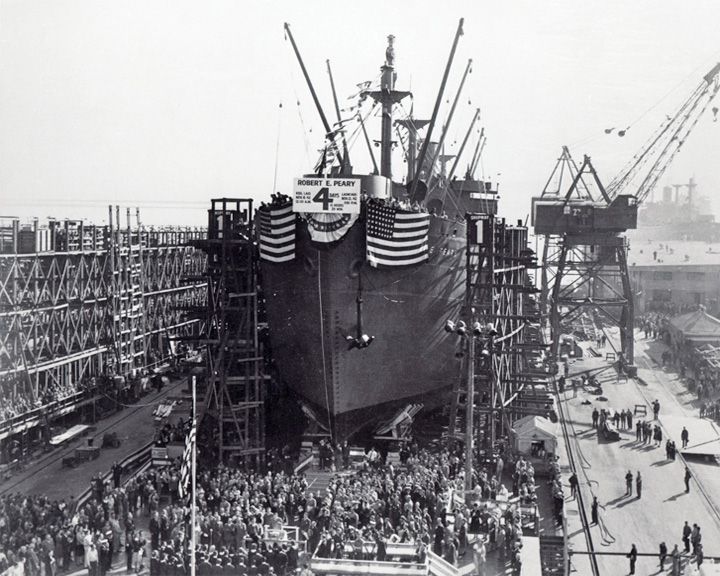 Robert E. Perry, SS — American liberty ship Gained fame during World War II for being built in the shortest time for such a large vessel. Typical completion of liberty ships took 50 days; she was completed in 4 days 15 hours and 29 minutes after the keel was laid down. LAUNCHED: 1942, November 12 → FATE: Scrapped at Baltimore, June 1963. |
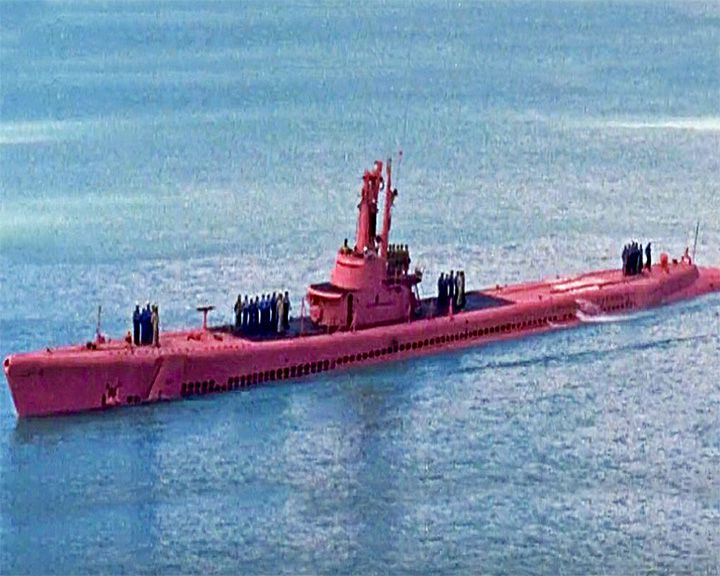 (Another (Another Sea Tiger, USS — American submarine A fictional U.S. Navy submarine in the 1959 movie Operation Petticoat during the opening days of World War II. Stand-in boats were USS Balao painted pink for exterior shots and USS Archerfish with the standard colors of gray and black for interior and some exterior shots. LAUNCHED: 1959 → FATE: Inconclusive. |
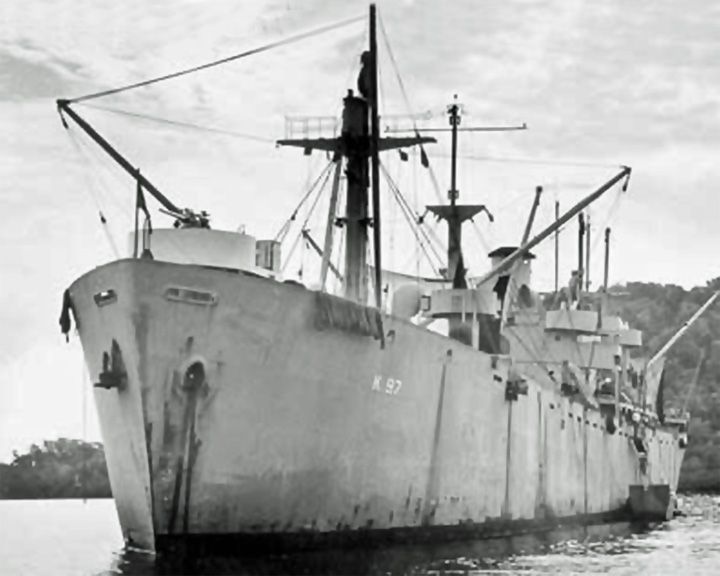 Serpens, USS — American Crater-class cargo ship The most catastrophic single-event loss of life in the history of the U.S. Coast Guard with 250 casualties. In the explosion, a 12-ton locomotive, the wooden pier it sat on, and 16 boxcars loaded with bombs and ammunition disappeared completely. LAUNCHED: 1943, April 5 → FATE: Exploded in complete destruction January 29, 1945, on the coast of Guadalcanal. |
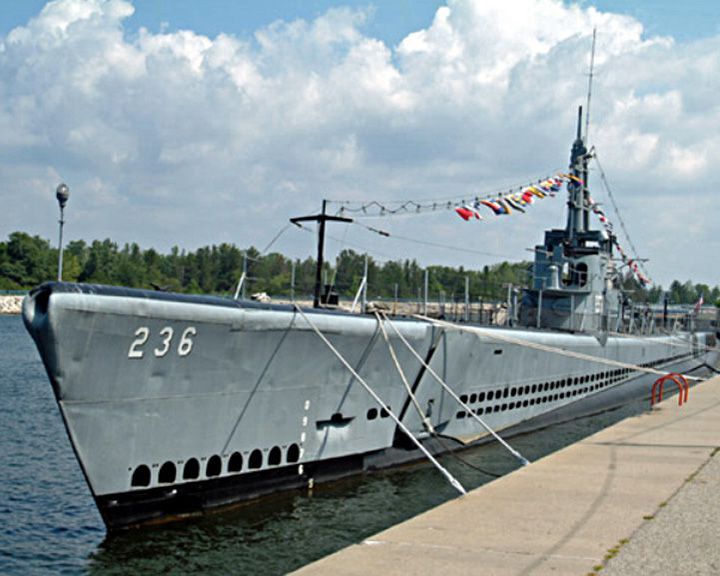 Silversides, USS — American Gato-class submarine One of the most successful submarines in the Pacific Theater of World War II, with 23 sinkings totalling more than 90,000 tons. She was used to depict the fictional submarine USS Tiger Shark in the 2002 film Below LAUNCHED: 1941, August 18 → FATE: Currently serves as a museum ship at the USS Silversides Submarine Museum in Muskegon, Michigan, and is a National Historic Landmark. |
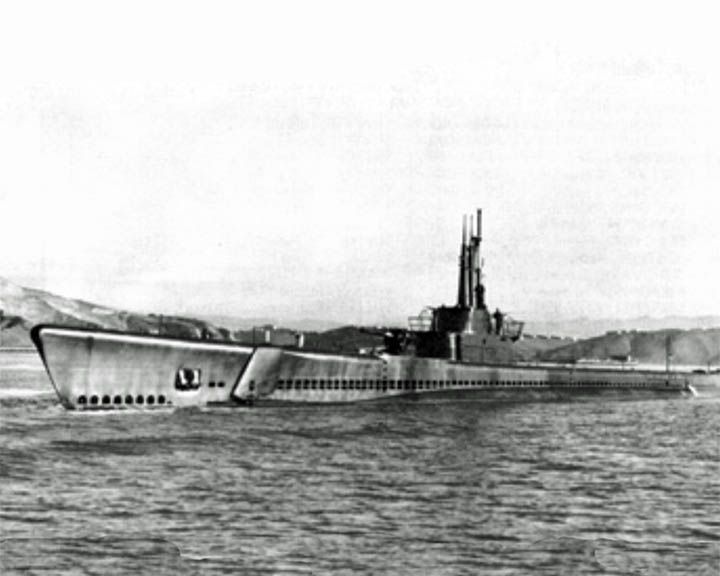 Tang, USS — American Balao class submarine Credited with sinking 31 enemy ships totaling 227,800 tons, unequaled among American submarines during World War II. When she was sunk by a circular run of her final torpedo, several crew escaped the sinking boat with a Momsen lung, the only known occasion of its use. 78 men were lost and the nine survived. LAUNCHED: 1943, August 18 → FATE: Sunk by her own torpedo in the Taiwan Strait October 24, 1944. |
 (Another (Another Texas, USS — American New York class battleship The only remaining World War I era dreadnought battleship. She is noteworthy for being one of only seven remaining ships and the only remaining capital ship to have served in both World Wars. LAUNCHED: 1912, May 18 → FATE: Museum ship at San Jacinto Battleground State Historic Site. |
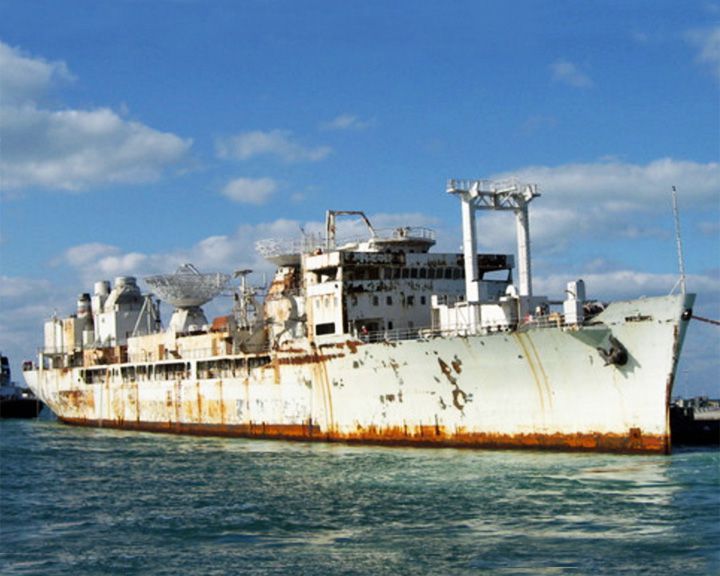 Vandenberg, USAFS — American transport ship Second-largest artificial reef in the world, after the aircraft carrier USS Oriskany. She transported troops in World War II. In 1998, she was featured in the film Virus as the Russian research ship Akademik Vladislav Volkov. LAUNCHED: 1943, October → FATE: Sank May 27, 2009, six miles off the Florida Keys. |
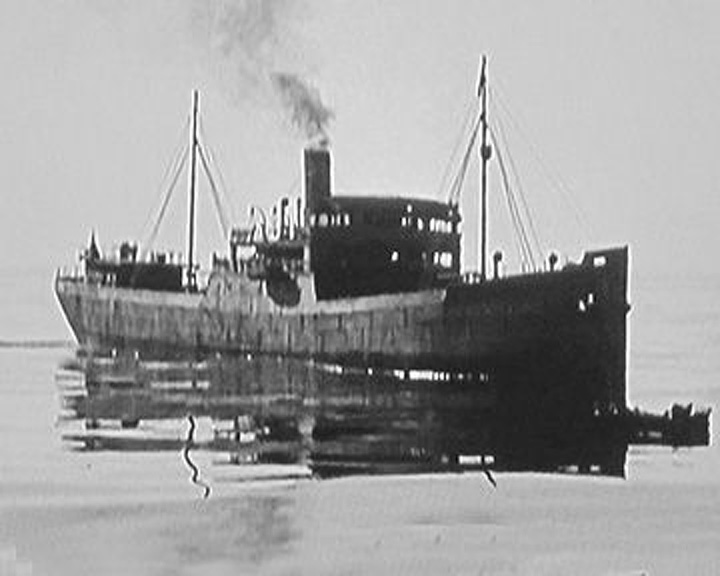 Ville de Nancy — American sloop of war Fictious ship in the movie Passageto Marseille, set during World War II and starring Humphrey Bogart. For the movie, Warner Bros. built a full-scale Merchant Marine ship modeled after the French ship Ville de Nancy. LAUNCHED: 1940 → FATE: Inconclusive. |
|
Page 7
|
 Wolverine, USS (originally Seeandbee) — American training ship Converted from a luxury side-wheel steamer cruise ship into a freshwater aircraft carrier serving in Lake Michigan for the advanced training of naval aviators in carrier take-offs and landings. As the Seeandbee, launched in 1912, she was the largest side-wheel steamer in the world at the time. LAUNCHED: 1942, August 12 → FATE: Sold for scrap December, 1947. |
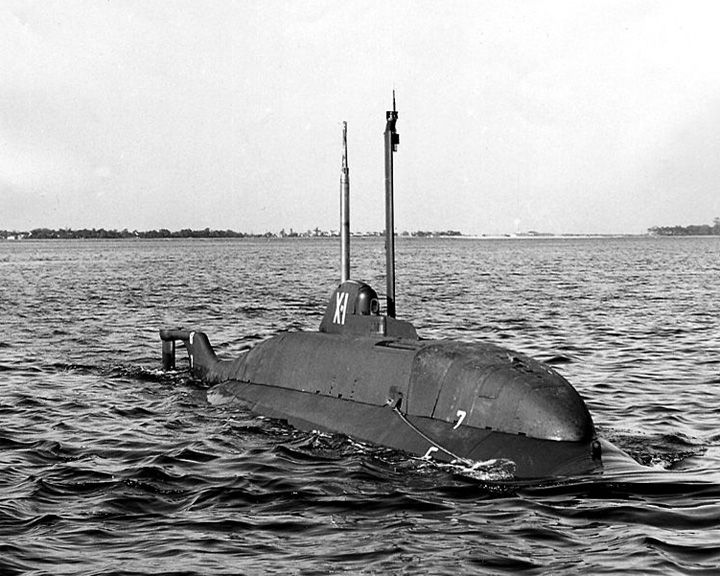 X-craft submarine — American miniature submarine Deployed September, 1943 against German warships based in Norway. These midget subs would be towed to their target area by a full-size submarine. Of the 20 built, seven were lost, 12 scuttled or scrapped. LAUNCHED: 1943 → FATE: Only one has survive and is on display at the Royal Navy Submarine Museum. |
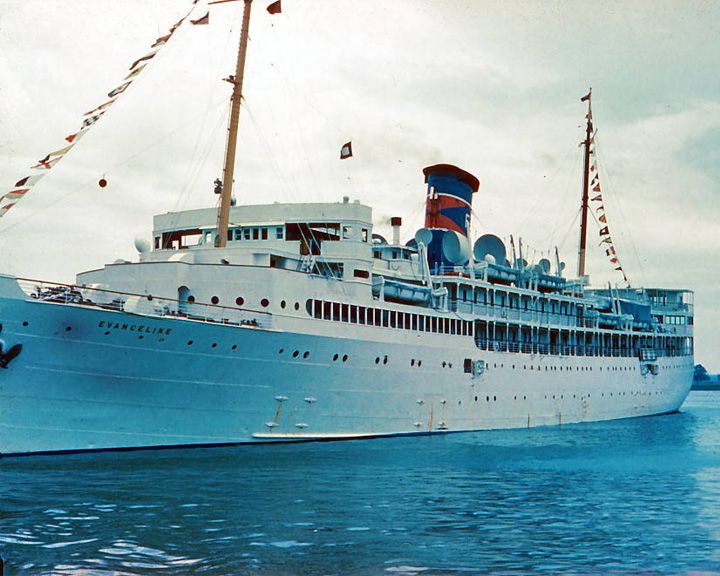 Yarmouth Castle, SS — American cruise ship Fire left 90 of 552 on board died. Her loss lead to the Safety of Life at Sea law. During World War II, she served as a troop ship and hospital ship in the Pacific. LAUNCHED: 1927 → FATE: Sunk in a blaze on the way to Nassau November 13, 1965. |
The number of American Ships in World War I and II listed is 50 The contents of this page are available under the Creative Commons Attribution-Share Alike 3.0 Unported license and the GNU Free Documentation License (GFDL). |
|
|
First Ship on each page
| |
| Page | Ship Name (Country and Type) |
| 1. | Balao, USS (American submarine) |
| 2. | Campbeltown, HMS (American Wickes-class destroyer) |
| 3. | Higgins boat (American troop landing craft) |
| 4. | John W. Brown, SS (American liberty ship) |
| 5. | Mount Hood, USS (American ammunition ship) |
| 6. | Robert E. Perry, SS (American liberty ship) |
| 7. | Wolverine, USS (American training ship) |
American | |
| 1. | Balao, USS American submarine |
| 2. | Ballantrae, USS American Town-class destroyer |
| 3. | Becuna, USS American submarine |
| 4. | Belinda, USS American attack transport |
| 5. | Birmingham, USS American scout cruiser |
| 6. | Calypso, RV American minesweeper |
| 7. | Campbeltown, HMS American Wickes-class destroyer |
| 8. | Cassin Young, USS American destroyer |
| 9. | Cusk, USS American submarine |
| 10. | Dolpin, USS American V-class submarine |
| 11. | Drum, USS American Gato-class submarine |
| 12. | Eldridge, USS American destroyer escort |
| 13. | Flying Enterprise American cargo ship |
| 14. | Hannibal, USS American collier |
| 15. | Higgins boat American troop landing craft |
| 16. | Honey Fitz American yacht |
| 17. | Houston, USS (CA-30) American cruiser |
| 18. | Indiana, USS (BB-1) American battleship |
| 19. | Indianapolis, USS American Portland-class |
| 20. | Intrepid, USS American aircraft carrier |
| 21. | Iowa, USS American fast battleship |
| 22. | John Adams, USS American frigate |
| 23. | John W. Brown, SS American liberty ship |
| 24. | Lady Elgin, PS American paddle steamer |
| 25. | Laffey, USS American Allen M. Sumner-class destroyer |
| 26. | Langley, USS American aircraft carrier |
| 27. | Liberté, SS German ocean liner |
| 28. | Massachusetts, USS American South Dakota class battleship |
| 29. | Meredith Victory, SS American cargo ship |
| 30. | Missouri, USS American battleship |
| 31. | Mount Hood, USS American ammunition ship |
| 32. | New Jersey, USS American battleship |
| 33. | Olympia, USS American protected cruiser |
| 34. | Ostfriesland, SMS German battleship |
| 35. | Panay, USS American river gunboat |
| 36. | Patrick Henry, SS American liberty ship |
| 37. | PT 109 American motor torpedo boat |
| 38. | Reuben James, USS American destroyer |
| 39. | Robert E. Perry, SS American liberty ship |
| 40. | Sea Tiger, USS American submarine |
| 41. | Serpens, USS American Crater-class cargo ship |
| 42. | Silversides, USS American Gato-class submarine |
| 43. | Tang, USS American Balao class submarine |
| 44. | Texas, USS American New York class battleship |
| 45. | Vandenberg, USAFS American transport ship |
| 46. | Ville de Nancy American sloop of war |
| 47. | Wolverine, USS American training ship |
| 48. | X-craft submarine American miniature submarine |
| 49. | Yarmouth Castle, SS American cruise ship |
|
About the Data There are more than 400 ships in this database, but the initial list is only for famous ships names that begin with letters "A-B". For other listings, use the country and type tabs. Touching (or cursor over) a ship image produces an enlargement. Touch anywhere else (or move the cursor off the image) to close the larger image. Touching (or clicking on) any underlined name will link to a page with more information. Although submarines are usually called boats, they are grouped with ships here. Most of the information comes from Wikipedia. |
^
Other Pages in Names Galore: | |
Famous Cowboy Names Sports Team Names Other Name Lists | Name Generators Naming Fun Stories about Names |